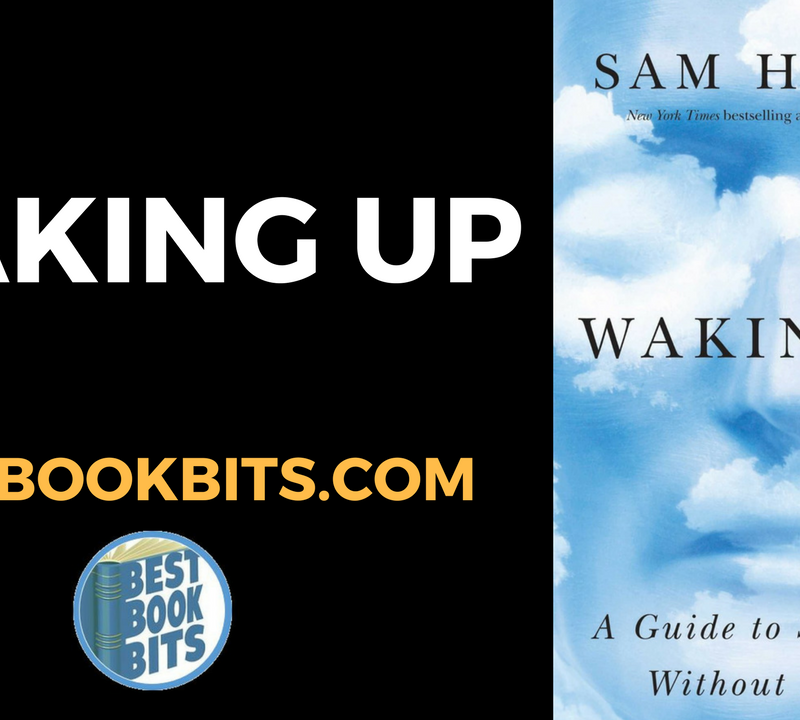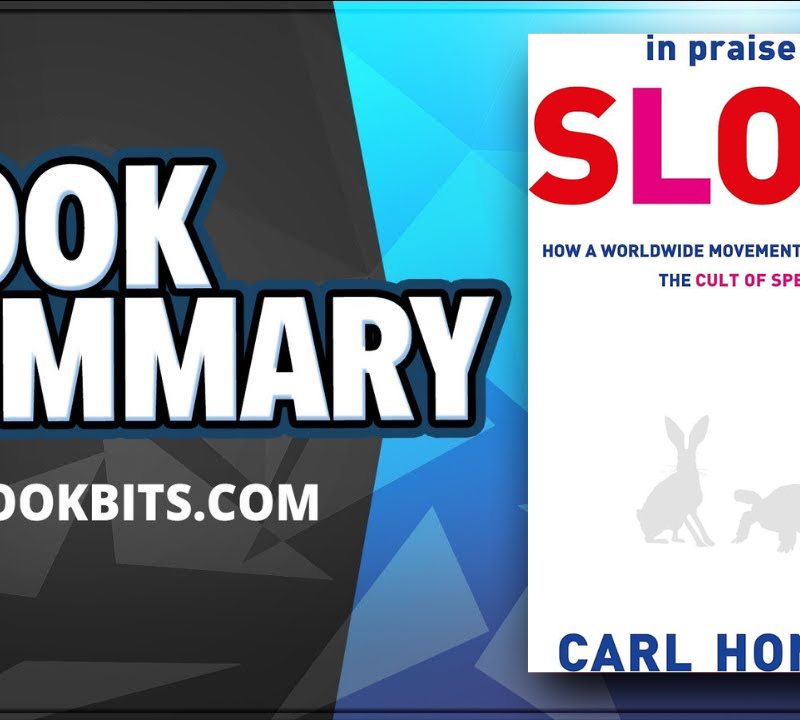< DOWNLOAD THIS SUMMARY IN PDF HERE >
< FOLLOW US HERE > |YouTube |Spotify | Instagram | Facebook | Newsletter | Website
Intro to Haemin Sunim:
Haemin Sunim is a Zen Buddhist teacher and writer in South Korea, where he’s known as a “healing mentor.” He came to the United States to study film, but he found himself going down a spiritual path instead. He was educated at UC Berkeley, Harvard, and Princeton, received formal monastic training in Korea, and taught Buddhism at Hampshire College.
Chapter 1: Rest
- “Why am I so busy? When everything around me is moving so fast, I stop and ask, ‘Is it the world that’s busy, or is it my mind?’”
- “To be honest, I sometimes wonder whether a Zen monk should keep to such a full schedule. But then I realize it isn’t the outside world that is a whirlwind; it is only my mind. The world has never complained about how busy it is.”
- “There is a famous Buddhist saying that everyone appears as buddhas in the eyes of the Buddha and everyone appears as pigs in the eyes of a pig. It suggests that the world is experienced according to the state of one’s mind. When your mind is joyful and compassionate, the world is, too. When your mind is filled with negative thoughts, the world appears negative, too. When you feel overwhelmed and busy, remember that you are not powerless. When your mind rests, the world also rests.”
- “We know the world only through the window of our mind. When our mind is noisy, the world is as well. And when our mind is peaceful, the world is, too. Knowing our minds is just as important as trying to change the world.”
- “Awareness is inherently pure, like the open sky. Stress, irritation, and anger can temporarily cloud the sky, but they can never pollute it. Negative emotions come and go like clouds, but the wide-open sky remains.”
- “The wise do not fight the world. In the most relaxed and playful manner, they simply embody the truth that they are one with it.”
- “What makes music beautiful is the distance between one note and another. What makes speech eloquent is the appropriate pause between words. From time to time we should take a breath and notice the silence between sounds.”
- “The world will keep turning even without you.”
Chapter 2: Mindfulness
- “As the spiritual teacher Jiddu Krishnamurti said, pure attention without judgment is not only the highest form of human intelligence, but also the expression of love.”
- “If I had to summarize the entirety of most people’s lives in a few words, it would be endless resistance to what is. As we resist, we are in constant motion trying to adjust, and yet we still remain unhappy about what is…If I had to summarize the entirety of an enlightened person’s life in a few words, it would be complete acceptance of what is. As we accept what is, our minds are relaxed and composed while the world changes rapidly around us.”
- “The monk most venerated by other monks is not the one who appears most holy, preaches the best, runs the largest temple, most accurately predicts the future, has the ability to cure illness. He is the one who teaches through his own actions. He possesses no aura of self-importance, and sacrifices himself first for the community. Spirituality must be practiced not just in solitude but also among people. Open up to people around you and feel connected. This is the true challenge of spiritual practice.”
- “If you are sincere about reaching enlightenment, you can learn even from a child, or from the person who insults you on the street. The entire world becomes your teacher.”
- “Even when we are awake we are no different from a sleepwalker. We do things without the awareness of doing them. Just because our eyes are open does not mean we are awake.”
- “When an enlightened person transcends the duality of you and me, she sees life as one long play. This is why she remains humorous and lighthearted. She plays her role but never forgets it is a performance.”
- “Life is like theater. You are assigned a role. If you don’t like the role, keep in mind that you have the power to re-create the role you want.”

< DOWNLOAD THIS SUMMARY IN PDF HERE >
< FOLLOW US HERE > |YouTube |Spotify | Instagram | Facebook | Newsletter | Website
Chapter 3: Passion
- “A person does not live the way he says he would. He lives the way he has been living.”
- “Historically, the people who bring about change in society tend to be not the middle-aged but the passionate youth. Their hearts are sensitive to the plight of the oppressed. Their spirits stand tall against injustice and fight for the voiceless. Hold on to that youthful heart and spirit no matter how old you are.”
- “A vow to help others can summon immense energy from within. This is why people take the Bodhisattva vows to save all sentient beings before embarking on a journey of spiritual enlightenment.”
- “Instead of maintaining the sanctity of our values, shouldn’t we care more about the person sitting in front of us? Isn’t it better to be happy together than to be right alone?”
Chapter 4: Relationships
- “According to the wise Confucian scholar Jeong Yak-yong (1762–1836): ‘The best way to hide your wealth is to give it away. If you are generous with your wealth, the money that would have disappeared sooner or later becomes an everlasting jewel, deeply engraved in the heart of the recipient.’”
- “The whole universe is contained in an apple wedge in a lunch box. Apple tree, sunlight, cloud, rain, earth, air, farmer’s sweat are all in it. Delivery truck, gas, market, money, cashier’s smile are all in it. Refrigerator, knife, cutting board, mother’s love are all in it. Everything in the whole universe depends on one another. Now, think about what exists in you. The whole universe is in us.”
- “When you lower yourself, the world elevates you. When you elevate yourself, the world lowers you. When you arrive at the peak of enlightenment, you will understand: Your peak is the same height as your neighbor’s. At the peak, you see everyone’s holiness.”
- “According to some psychologists, happiness can be assessed with two simple questions. First, do you find meaning in your work? Second, do you have good relationships with those around you?”
- “For spiritual practitioners, relationships are the final test. Even if you have awakened to your enlightened nature, there is still further to go in your spiritual journey if you’re not living harmoniously with others.”
Chapter 5: Love
- “The truth is, we are all ordinary.”
- “No matter how famous or beautiful one is, no matter how much money or power one has, no matter how many wonderful accomplishments one has had, we all have our share of setbacks, heartbreak, and loss. We have to face challenges we have no control over. Loneliness and the fear of death will accompany us to our final days. Everyone is on the same treacherous journey of life’s tainted glory.”
Chapter 6: Life
- “There are many more ordinary hours in life than extraordinary ones. We wait in line at the supermarket. We spend hours commuting to work. We water our plants and feed our pets. Happiness means finding a moment of joy in those ordinary hours.”
- “When you concentrate, even a phone book can be interesting. If you are bored, maybe you are not concentrating.”
- “Where you live shapes you…Do you live in a place conducive to the pursuit of your dreams?”
- “The more you know, the more you think you don’t. The more you don’t know, the more you think you do.”
- “When we hold too firmly to our beliefs, we risk being blind to reality and seeing only what conforms to our beliefs.”
- “Life is like jazz. Much of it is improvised; we cannot control all the variables. We must live it with panache and flair, regardless of what it throws at us.”
- “Keep your thoughts positive, because your thoughts become your words. Keep your words positive, because your words become your behavior. Keep your behavior positive, because your behavior becomes your habits. Keep your habits positive, because your habits become your values. Keep your values positive, because your values become your destiny.” —MAHATMA GANDHI (Note: See what inspired Gandhi’s simple living transformationat age 23)
< DOWNLOAD THIS SUMMARY IN PDF HERE >
< FOLLOW US HERE > |YouTube |Spotify | Instagram | Facebook | Newsletter | Website
Chapter 7: The Future
- “My dear young friend, please don’t feel discouraged just because you are slightly behind. Life isn’t a hundred-meter race against your friends, but a lifelong marathon against yourself. Rather than focusing on getting ahead of your friends, first try to discover your unique color.”
- “There is no such thing as being completely prepared. Life is an adventure, through which we learn and mature. Of course, we must consider all our options carefully. But if we wait for 100 percent certainty, then it is often too late.”
- “When you are about to make an important decision, there is always a moment of hesitation right before you sign on the dotted line. Don’t pull back. You have come all this way after having given it serious thought. Don’t look back. Continue on your path courageously, like a one-horned rhinoceros.”
- “Try these two things at the same time: Pretend you are already a champion and work diligently at becoming one. The gap between belief and reality will soon close.”
- “Your freedom is more important than money. It is better to live the kind of life you want than to earn more and be constrained. Don’t sell your freedom.”
- “Never cede the power to make decisions about your life. The Buddha and Jesus exist because you exist. You are the owner of your life. Value yourself first.”
- “The great Korean Zen master Kyeongbong (1892–1982) once said: ‘Those who have not realized their True Self live like the blind, unintentionally scratching someone else’s leg. If you would like to scratch your own leg, first awaken to your True Self.’”
Chapter 8: Spirituality
- “I realized that Truth is not the exclusive property of any one religion. It has a universal quality that allows people of different religious traditions to recognize and respect it.”
- “Some may think that life in such a community is repressed, strict, and difficult, but that is not the case. A monastic life is characterized by simple beauty and unexpected joy. Monks find happiness in things that may seem trivial to those who pursue the material trappings of success. Watching the seasons change—the blossoming of the magnolias, the dazzling fall foliage, the first snowfall—brings indescribable joy and gratitude. A simple meal made with fresh ingredients from the nearby mountains is a source of great contentment. Because our monastic brothers are our friends, teachers, and family, we are never lonely.”
- “If Jesus, Buddha, and Confucius were all alive and gathered in the same place, would they argue over who is right? Or would they respect and admire one another’s teachings? Religious conflict can often be blamed not on the founders of religions but on their fanatical followers.”
- “He who knows only one religion knows none.” —MAX MÜLLER (1823–1900)
- “You can admire a spiritual leader but never idolize him. Blind faith in the leader can easily reduce you to acting like a child, handing over your power and asking the leader to do things for you. Medicine can be prescribed, but it must be you who takes it.”
- “For unenlightened people, not every day is a good day, because they feel happy only when things happen the way they want them to. For enlightened people, every single day is a good day, because they feel free knowing that nothing can take away their wisdom.”
- “There is a simple way to test the veracity of the Buddha’s teachings. Find the most comfortable posture. Remain in that posture for thirty minutes. The most comfortable posture soon becomes the most uncomfortable. Everything is impermanent, including the world’s most comfortable posture.”
Epilogue:
- “When you are so busy that you feel perpetually chased, when worrying thoughts circle your head, when the future seems dark and uncertain, when you are hurt by what someone has said, slow down, even if only for a moment. Bring all of your awareness into the present and take a deep breath.”
- “In the stillness of the pause, the entirety of our being is quietly revealed.”
- “Wisdom is not something we have to strive to acquire. Rather, it arises naturally as we slow down and notice what is already there.”
< DOWNLOAD THIS SUMMARY IN PDF HERE >
< FOLLOW US HERE > |YouTube |Spotify | Instagram | Facebook | Newsletter | Website













